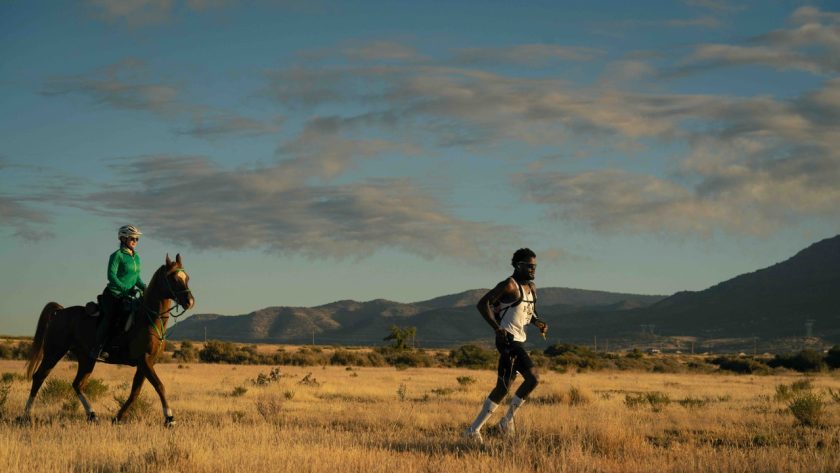My pre-race scouting reminded me that horses are incredibly strong. They are exceedingly fast sprinters. If we were racing around Churchill Downs, I’d be toast. Lucky for me, this wasn’t a sprint. I was contending the 25 mile course, which was set up to try to even the odds for the human. In addition to the distance, which made it a true endurance event, there was the mountainous terrain we had to traverse, with more than 2,000 feet of elevation gain. Horses don’t like that. So I lined up alongside 20 or so other runners and 40 horses just after dawn, and we set off down the trail.
It turns out that there’s something about chasing horses—and being chased by them—as you try to maintain your footing on sand and rocks that provides moments of lucidity. Here are some things that flashed through my mind.
Facts over feelings.
Beating a horse in a footrace seemed impossible, but when I did my research, I began to believe I could actually win. Many times we place self-imposed limits on what we can do. Not because we can’t but because we actually don’t know we have the capacity to do it beforehand. So if people laugh at your idea but you’ve done the research that shows it’s even possible to be successful, don’t be afraid to go test your chances.
Experience the action.
It’s easy for me just to do things so I complete them instead of actually experiencing them. Running has helped me shift to be present, especially when I run without music and simply monitor things as they are happening. In one of my last conversations with Virgil Abloh before he passed, he remarked to me he had been spending more time to stop and smell the roses. I’ve been applying that same attitude with everything, but especially running, ever since.
You don’t have to do the most.
When I do runs like this I get worried that people think if you can’t run a marathon (or race a horse) there’s no point in running at all. Far from the truth. Research has shown that just 5-10 minutes of leisurely jogging can reduce risk of death and cardiovascular diseases. So lace up the shoes.
We all need companionship to thrive.
Horses are herd animals and tend to have worse health outcomes when by themselves because they never fully relax—which sounds similar to humans, right? During the race, it felt as if one of the horses knew I was racing it and stayed along with me for a bit. Its rider even remarked that the horse wanted to be my friend. This may have been the oxygen deficit talking, but in an age with increased digital immersion and fraying social connection, I found myself thinking that humans are also herd animals, and would be happier and healthier if we spend a little bit more time with each other.



